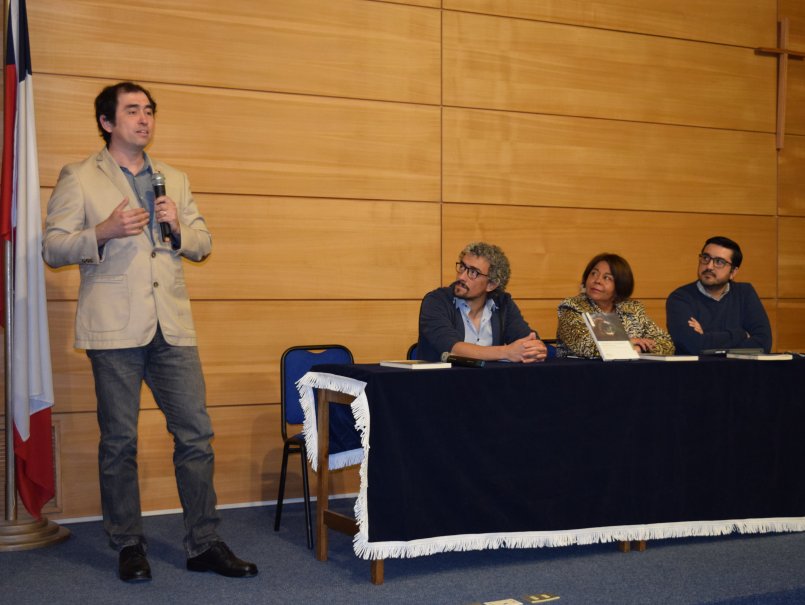
in the auditorium Dr. from the Faculty of Science. The launch of the second book “We Can and Should Investigate” by Waldo Queiroz, professor at the Otto Zollner Schor Institute of Chemistry, took place. Diego Maltrana, Director of the Doctorate in Science Teaching; Pablo Lizana, director of the Master in Didactics of Experimental Science, and Mabel Keller, former director of the Explora Valparaiso program.
Mabel has known Professor Quiros for many years and they have worked together on different occasions and always in the field of science dissemination. Already in 2006, they saw the first challenges regarding this task and the way to approach it. Regarding the origin of the book, he said: “It is the result of Waldo’s permanent practice, and it is valuable material that does not go out now.”
In relation to this beginning, Professor Queiroz recalled that at the beginning of the spread of science, he thought that science could not be done in schools, only training activities, which was not clear. “Later I realized that there were schoolchildren in this world who did more interesting research than some of us professionals. They asked each other good questions, apparently without an explanation. PaperBut creating knowledge in their local place,” he noted.
For his part, the dean of the Faculty of Science, Manuel Bravo, noted the professor’s research skills and the process of finding answers, “With this book he invites us to the tireless reflection of what we really need. Work on the search for explanations.
Regarding the book published by EUV and the importance it could have for society, Professor Multrana highlighted the importance that all people can use the basic elements of research, not just researchers, “I had research rejected many times. I didn’t know why until I read the book. I never had methodology courses. In the text I There are some obvious things seen that are logical to investigate, and “it’s a very accessible book with lots of examples.”
Analyzing what we can find in this new program by the academic of the Institute of Chemistry, Pablo Lizana, director of the current Master in Didactics of Experimental Science, commented: “Most of the work we did with the teachers in the science program. Here are the workshops. First I asked myself: what we all investigate What if we were masters and doctorates, but what Waldo is doing is that we can do everything at our local locations.
Experts agree that the new book has more friendly language and more examples to invite the community to do their own research.
EUV Communications
